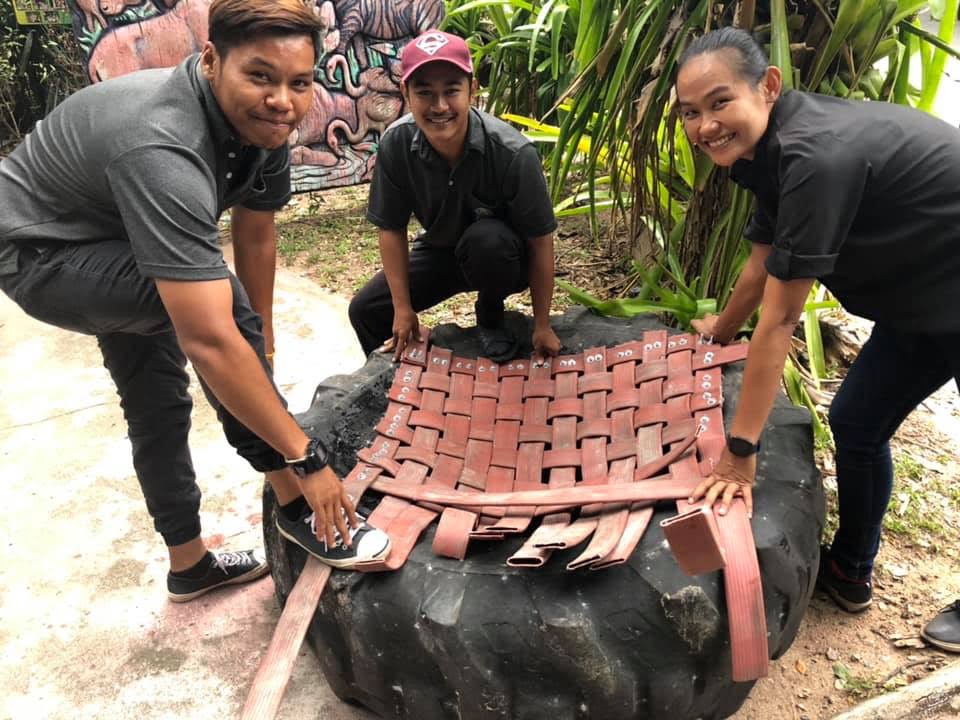Partnering for Zoo Animals: Just the beginning
Wild Welfare’s operations manager, Simon Marsh, hit the ground running in his first week working for us, by flying to Thailand to join our team on the inaugural Partner for Animals welfare programme. In our latest blog, Simon shares the highs and lows of this first project and his long-term hopes for the programme.
What a way to start my first day as operations manager for Wild Welfare, negotiating my way across the UK and through London towards Heathrow airport on a bank holiday Monday, with train cancellations and diversions. It was worth the effort, as I was on my way to facilitate the first Partner for Animals programme between Wild Welfare, North Carolina Zoo in the USA, Khao Kheow Open Zoo and Chiang Mai Zoo, two zoos in Thailand belonging to the Zoological Park Organization of Thailand (ZPO).
The team from North Carolina were very excited but a little nervous, as some had never travelled outside North America and none had been to Thailand before. But the preparations and discussions between the zoos and Wild Welfare had prepared them for the projects ahead and as professional zoo keeping staff, they were more than ready for the challenge.
We were warmly welcomed by ZPO on our arrival in Bangkok, where two teams went their separate ways, myself and two North Carolina Zoo staff on to Khao Kheow Open Zoo and our director, Georgina, and two more North Carolina zoo keepers on to Chiang Mai Zoo in the north of Thailand.
Khao Kheow Open Zoo is more than 800 hectares, so our first few days touring around the facility took some time. Wild Welfare carried out an assessment of the zoo in 2018, but it was important to carry out our own up-to-date assessment when we arrived, to identify priority areas to address during this first project visit.
The zoo staff were all extremely friendly and accommodating and very open to our comments and concerns surrounding the zoo’s animals. After our initial zoo assessment, we prepared a presentation for the ZPO team and held meetings with senior zoo staff to discuss and explore how we could initiate and progress the partnership over the coming days and more long-term. We had around 25 senior staff attend and they all showed a real desire to improve their animal welfare standards and had a thirst for knowledge.
A vital part of the Partner for Animals programme is to ensure the zoo team we work with overseas know it is a true partnership and that our aim is to work together, not dictate to them. This partnership focus is key to each project’s success and ultimately the most positive outcomes for the zoo animals we are aiming to help.
With agreed focus areas and a plan in place for the coming weeks, we set about preparing equipment for positive reinforcement training, gathering fixtures and fittings for upcoming enrichment building projects for primates, bears and a whole host of other species and putting together daily activity plans.
Over the next fortnight, our team and the staff from the zoo worked extremely hard to make changes for a variety of the zoo’s animals. We carried out positive reinforcement training with the zoo’s mahouts and moved back some individual elephants that had been separated from the herd, to ensure optimum social opportunities. The mahouts could see the benefits of positive reinforcement over their traditional training methods straight away and were able to use the new method to help enable a foot examination of one of the elephants within days – it was a great result.
We made suggestions for enclosure improvements for the zoo’s rhino, bears, tigers, other small cat species and primates, all based around giving the animals greater access to their environments and a better opportunity to carry out natural behaviours, like climbing, feeding, foraging and den and nest building.
The zoo has non-public areas, for confiscated wild animals and where some animals used in visitor shows and performances are housed during events. Sometimes it is very hard to address the issues around too many animals in a facility, or the lack of permanent enclosures for all animals, as solutions may be reliant on finances and resources that are not immediately available – but Wild Welfare tries to address welfare issues straight away wherever it can, as even making small changes can have a big impact on an individual animal’s welfare. We made several recommendations for how zoo staff could improve the welfare for the animals in the non-public areas and we worked on some short-term changes that immediately created a better environment for the animals, as well as setting a standard which the staff can repeat moving forward.
I was amazed at the progress that was made in such a short time. This was due to the fact this truly is a partnership, where all parties involved worked together for the benefit of the animal’s welfare. With such a fantastic start to the Partner for Animals programme I believe we can start to expand this unique project. While North Carolina Zoo, supported by Wild Welfare, are already planning the next visit to Thailand, we will be looking to partner other zoos and continue to improve animal welfare around the world.
Image © Wild Welfare: Thai zoo staff building new enrichments at one of the zoos during the project





